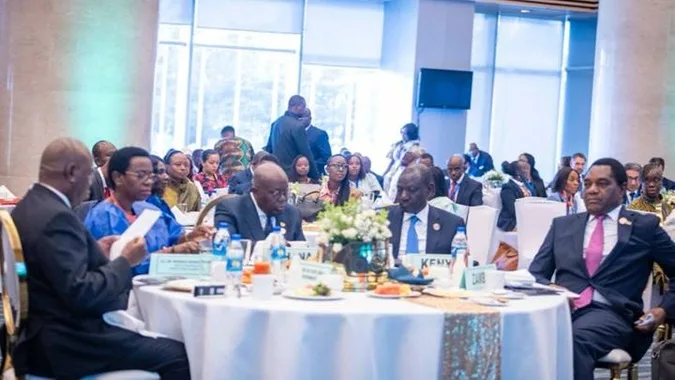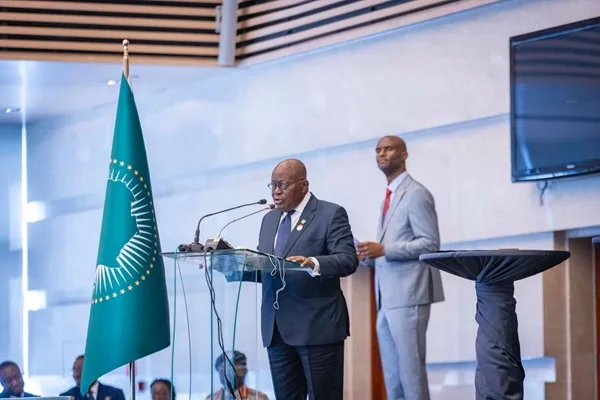37th AU Summit Pushes for Overhaul of Global Financial Architecture
On Saturday 17 February 2024, during the 37th AU Summit (#AUS2024), a Presidential Dialogue was held to discuss the way forward to push for ‘much needed reforms’ of the Global Financial Architecture. In addition to African heads of state and government, the Dialogue was attended by #DFI and #MDB working on Africa such as African Export-Import Bank, Trade and Development Bank, Africa Finance Corporation, African Reinsurance Corporation and African Trade and Investment Development Insurance.
The dialogue was initiated by Ghana President Nana Akufo-Addo who is also the Champion for the creation of strong African Union Financial Institutions. The African leaders generally believe that the International Financial Architecture which emerged after the 2nd World War following the Bretton Woods agreement is no longer fit for purpose.
In particular, the Global Financial System, which is primarily controlled by the World Bank (WB) and International Monetary Fund (IMF), appears to be disconnected with the reality on the ground in Africa and thus have an incomplete perspective on sovereign risk profile.

“We are all in agreement that the way the Global Financial Architecture works at the moment does not work in our favor. There is a need to make some fundamental systemic reforms.”
Ghana President Nana Akufo-Addo
The Global Financial System has found it a challenge to deal with the multiple crises currently riddling the world. Were it not for African financial institutions, many African countries would not have been able to access financing in order to procure urgently needed life-saving vaccines and medical materials during the #COVID pandemic.
Many African countries have valuable assets which are not taken into account on the balance sheets, thus lowering their credit score and in turn limits options in term of financing. From an African perspective, the financial institutions have been unable to mobilize the long-term resources needed to support the development agenda of the emerging continent, forcing countries to turn to private capital markets with unfair interest rates and unfavorable conditions.
The African leaders have outlined an action plan as follows:
- Craft real solution to debt crisis
- Provide more grant and concessional financing to Africa
- Rechannel IMF SDR to African Financial Institutions
- Increase African voice and power in global decisions
- Commit to an ambitious green growth agenda supported by sustainable financing for Africa
“We aren’t assessed correctly in terms of the credit risk assessment of our countries and the continent as a whole. We are given a higher risk profile, and unfairly so.”
Zambia President Hakainde Hichilema
The occasion also saw the establishment of the African Union Financial Institutions (AUFI) which include the African Central Bank, African Monetary Fund, African Investment Bank and Pan-African Stock Exchange. Moreover, the Alliance of African Multilateral Financial Institutions (AAMFI) — also known as the Africa Club — was also officially launched.
As a new permanent member of #G20, the #AU can leverage the new fora to push for the urgent and necessary reforms of the #WB and #IMF. At the same time, the AU should work for and support the strengthening of the African financial institutions such as #AfreximBank and #AfDB.
“There was a time when a conversation about the Global Financial Architecture looked like it was an us vs. them debate. I’m very happy that today every capital, North and South, has agreed that there is something fundamentally wrong; recognition that the problem exists is half the solution. We decided in Nairobi that we are not going to take the corner of the victim and to try and point fingers and play the blame game, we are going to do something about it and be part of the solution.”
Kenya President William Ruto

